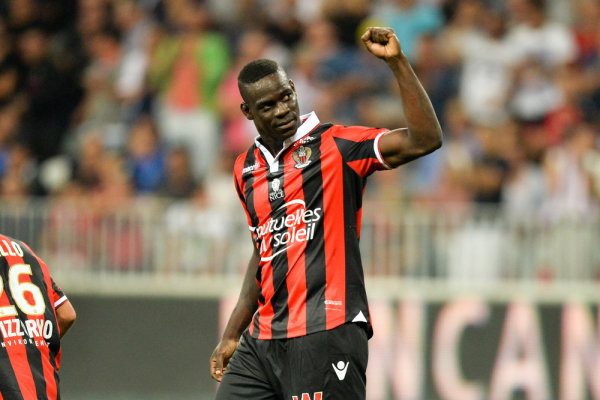Xherdan Shaqiri: The Swiss star brings plenty of excitement to the Britannia
The depressing statistic from the opening weekend of action in the Premier League was that only 88 of the 276 players involved were English, whilst to date 77% of the business completed by English clubs this summer has been for foreign players. It is a sad result of a modern game in which the Premier League is king, flexing its financial muscle with the help of an unbalanced prize money system and the income of an obscenely lucrative TV deal.
The grotesque riches swimming about in the Premier League pool means it can boast 14 of the 30 richest clubs in the Deloitte Money League, allowing now for mid-table clubs to power ahead of the more established clubs in Europe when it comes to transfer dealings.
For example this summer has seen West Ham attract Dimitri Payet of Marseille, Newcastle United have signed Georginio Wijnaldum and Swansea and Aston Villa have taken each of the Ayew brothers from Marseille and Lorient respectively.
Meanwhile West Bromwich Albion have bought Salomon Rondon from Zenit St Petersburg for £12 million, a club record, while Yohan Cabaye, looking for a route out of PSG, had the chance to join Roma in the Champions League but chose a return to the Premier League with Crystal Palace.
Financial clout
Stoke City, with revenues of £117 million in 2013-14 putting them ahead of Italian giants Lazio and just inside the top 30 of Deloitte’s table, have been busy using their financial clout and the lustre of the continuously gentrified Premier League to persist with their aim, under Mark Hughes, to distance themselves away from the pragmatic and prosaic days of Tony Pulis.
Following on from Marc Muniesa and Erik Pieters in 2013 and Bojan Krkic last year, Hughes has pulled off deals this time around for Ibrahim Afellay from Barcelona, Hannover’s Joselu and most significantly, Xherdan Shaqiri for a club-record £12 million.
Shaqiri brings with him much hype and excitement to the Potteries, but his move also carries a hugely curious element of why Inter Milan were so keen to jettison the player they signed as recently as January.
Performances with Inter
Inter, in the first stages of the ambitious project of owner Erick Thohir, are not short of money but, despite the claims of manager Roberto Mancini in April that the Swiss winger had his “full confidence”, were not prepared to give Shaqiri time to prove that he could be part of their long-term plans.
Shaqiri played 15 games for Inter since making the winter switch from Bayern Munich and started just 8 times, with criticism coming from former player Lothar Matthaus who accuses Mancini of failing to support the winger during his time in Milan. Quite why Mancini, and also Pep Guardiola who increasingly limited his playing time in Munich before selling him, were so quick to give up on the Swiss, who remains an extremely gifted player, is something that Stoke and Hughes will now discover, albeit at quite an expense.
Expense that Schalke, wanting to bring Shaqiri back to Germany, found too much despite their regular appearances in the Champions League. “When you can make €6 million (£4.2m) at Stoke or €3m (£2.1m) at Schalke, you pick the latter” were the words of former Bayern midfielder Steffen Effenberg in criticising Shaqiri for making the move to the Britannia Stadium. “This is a shame and a sad state of affairs. Only because they are throwing around cash? Is it really all about money for footballers these days?”
His motives
In fairness it is difficult to work out Shaqiri’s motives for the move if they are not financial. Of course it presents the Swiss winger with the chance to play in the Premier League but Stoke are now part of its stagnant middle, boasting too much resource to be relegated but without the funds to compete for a Champions League spot.
The Europa League presents a viable opportunity and Stoke have embraced that competition before, yet it is so often treated with disdain by those who fail to see the attraction of playing Thursday night before a Sunday afternoon domestic date.
For Stoke’s supporters however it is an excuse to get carried away, now dining out on the likes of Bojan, Afellay and Shaqiri with those memorable of entering the millennium stuck in the third tier particularly appreciative of their new found star attractions.
“He’s a dynamic and explosive player who will bring something different,” said Mark Hughes and to a team that can often lack imagination in the final third that is true.
With the power of Jonathan Walters and Miram Biram-Diouf, the aerial threat of Joselu and Peter Crouch and now the incisive vision and technique of Afellay and the pace and trickery of Shaqiri, Hughes now has a wide-range of options in attack as he looks to better the 48 goals they totalled last season.
Impressive with his national side
A hat-trick scorer in the World Cup, a player who has amassed 46 caps for Switzerland and who won both Swiss Golden Player awards as he impressed in his first year at Bayern in which he won a treble under the guise of Jupp Heynckes, there is little doubt about the talent and on a five-year deal at the age of 23, time is on his side.
“I am very happy, and incredibly excited that this transfer to Stoke City has finally happened,” said Shaqiri who will immediately set about getting his club career back on track as well as convincing the dissenting voices who are calling into question his reasons for moving to Stoke.
For the middle-reaches of the Premier League these are rousing days indeed, but for the likes of Shaqiri they must prove they are offering more than just a pay day.
Written by Adam Gray
Follow Adam on Twitter @AdamGray1250
Like O-Posts on Facebook
You can also follow O-Posts on Twitter @OPosts





1 Comment